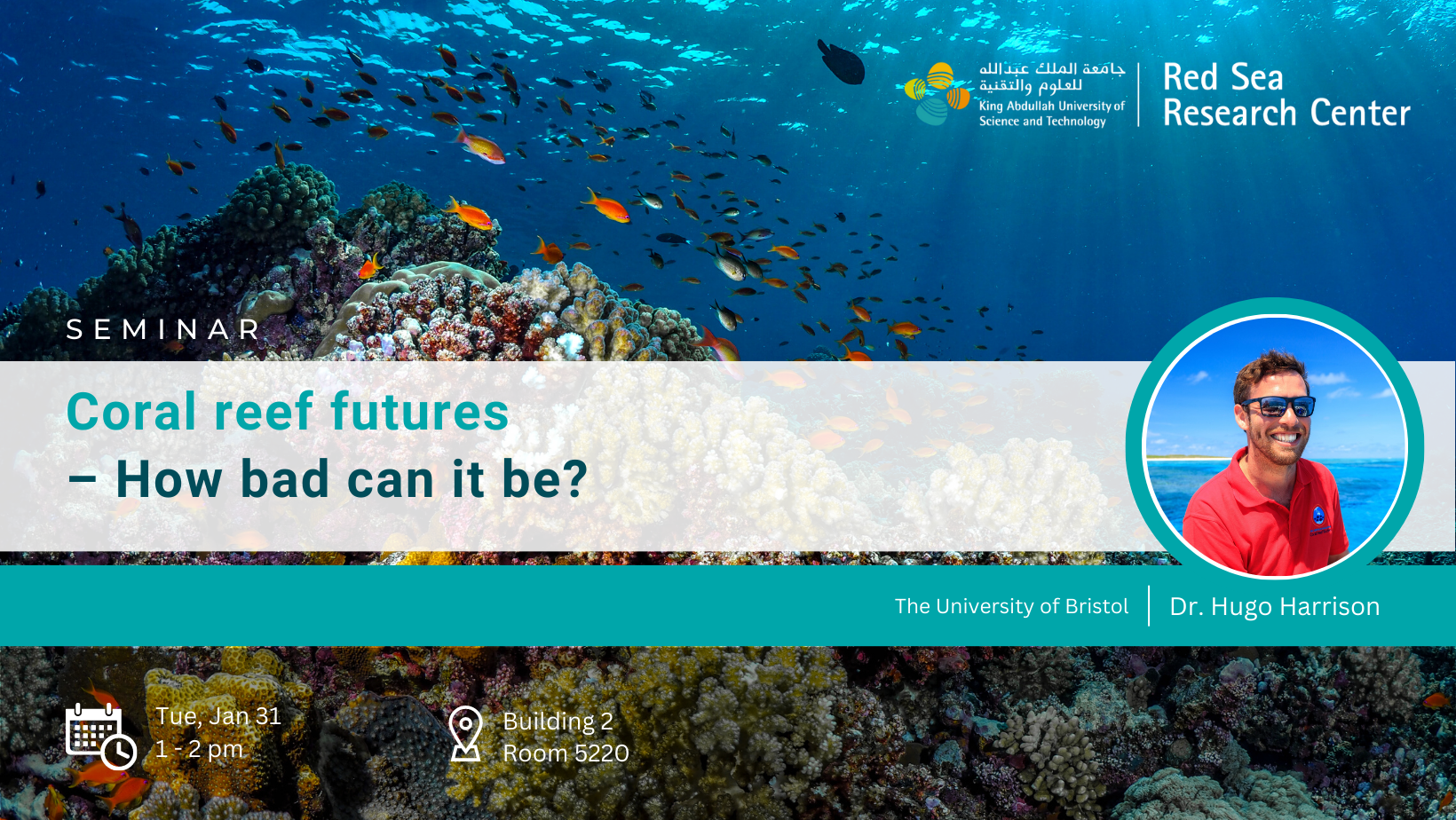



Abstract: Coral reef futures are increasingly uncertain. Effective management of these globally significant ecosystems is vital, but will it be enough to navigate the 21st century? In this presentation I provide an overview of my research on the Great Barrier Reef, where we have challenged common paradigms to align conservation goals with fisheries management strategies. Looking further afield to the isolated atolls of the Coral Sea, a series of marine heatwaves have left a noticeable impact on coral communities. Yet, amongst the fluorescent coral there is evidence that corals are acclimating and adapting to an increasingly volatile climate. Periods of instability are inevitable and there will be winners and losers. There is hope, but it won’t be an even playing field.
Speaker bio: Dr Hugo Harrison is a coral reef scientist with broad interests in ecology and evolution. He completed a PhD at James Cook University (Australia) in 2014 and was awarded an early career fellowship (DECRA) from the Australian Research Council in 2016 to develop a mechanistic understanding of connectivity and dispersal in marine organisms. This led to a range of research projects in the Coral Sea to establish the ecological and evolutionary processes that shape isolated coral reef atolls. He led nine expeditions over six years, recording the state of remote coral reef atolls and the impact of marine heatwaves on coral reef communities. In 2019, he was awarded a Postdoctoral Fellowship from the Australian Institute of Marine Science to investigate the impact of marine heatwaves on corals and their capacity to adapt to these events. Now a Senior Lecturer at the University of Bristol, he hopes to develop our capacity to predict how ecosystems will respond to more frequent and more severe disturbances. His research combines field research, physiological experiments and genomics to investigate the adaptive potential of coral reef ecosystems and provide the foundation for intervention strategies to help sustain ecosystems into the future.